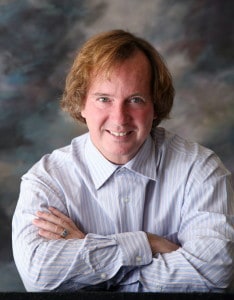I first became aware of the authorship question back in 1974, when my father, who was an attorney, sent me a copy of the Harvard Review, which contained an article written by Charlton Ogburn. At the time, I was taking a Shakespeare class at the University of Colorado, and he thought it would be helpful and interesting for me to read.

I was immediately electrified by what I read and kept going over the article and re-reading it, astounded by how much sense it all made. I took the article into my professor and asked him if he had heard anything about it, and would he review it. At my next class, I was disappointed to see that he was not impressed and merely smiled and handed it back to me. I could not understand why anyone in his position could not appreciate the reasoning of this article, which was a summary of The Mysterious William Shakespeare. To me it was like a religious conversion and for years afterwards I would engage people in conversations about it, despite the fact that hardly anybody knew anything about it.
At one point, I lent my precious article to someone who wanted to read it, and of course he promptly lost it. I was furious and went to the San Francisco library to try and recover it, and as fate would have it, nothing could be found for the Harvard Review and an article on Shakespeare. But there were other books, and one called, Talks with Elizabethans, told of psychic interviews with the spirits of Shaksper, Oxford, Bacon and others. It laid out a plausible conspiracy although at times the book went too far and the writer, Percy Allen, later went insane.
There had to be other people interested in this subject. Although I can’t remember how, but around 1994, I discovered the Shakespeare-Oxford Society and knew that I had found my home at last. I bought a copy of every book they had on sale and spent the winter reading and reading everything. I attended my first conference and never had so much fun talking about my favorite subject with so many people.
I’ve seen the society go through many changes over the years, especially with the split in interpretation between the so-called PT (Prince Tudor) theorists and the bisexual theorists (of which I am one). Oxfordians tend to be pretty smart people but can sometimes be vicious and nasty in defending their points of view. I was president of the SOS at one time and it became clear from the PT faction that they did not like to see a spokesman of the society supporting the bisexual view.
Time has healed much of the rancor over the dispute and I am impressed with the quality of research coming out of the society over the years and the effort and energy still being invested by so many talented Oxfordians. I’m not sure that the paradigm shift will ever take place in our lifetime unless we educate and indoctrinate teachers of the next generation. Still, I have to say that I think progress is being made and there is no lack of dedication and enthusiasm among our growing membership.
— Randall Sherman
“How I Became an Oxfordian” is edited by Bob Meyers. You may submit your essay on this topic (500 words or less in an editable format such as MS Word), along with a digital photo of yourself, to: communications@shakespeareoxfordfellowship.org. Also include a sentence about yourself (e.g., “John J. Smith is a businessman in San Francisco.”).
You can join the SOF or renew your membership at our membership page.


